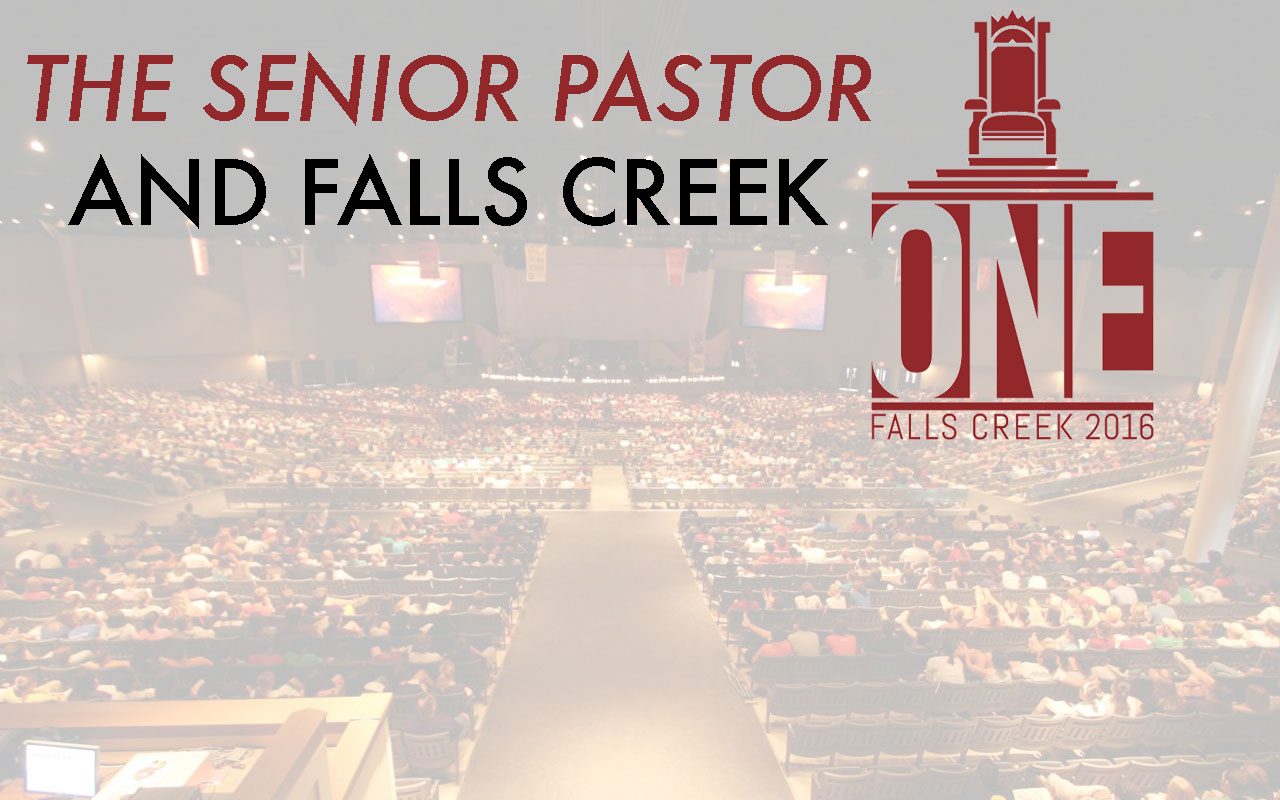DAVIS—About 750 individual churches will attend the 2016 youth weeks of camp at Falls Creek.
These 750 churches represent a vast variety of church locations, congregational sizes, and leadership models. One unique characteristic of Falls Creek is the active participation by the senior pastor. In 2015, based on a sample of just more than half of all participating churches, 44 percent of senior pastors attended all week of camp. Just less than 25 percent of senior pastors visited at least some time during their church’s camp week. Only 32 percent did not attend at all. Basically, two-thirds of all senior pastors played a part in their students’ camp experience.
Regarding the influence of a senior pastor at youth camp, Brett Selby, pastoral leadership Specialist at the Baptist General Convention of Oklahoma (BGCO) said, “The role of every pastor is to fulfill Col.1:28, that is, to shepherd every person to maturity in Christ. Camp allows you a unique setting and opportunity to accomplish this task in the life of a student.”
Some senior pastors attend Falls Creek with their groups out of necessity, due to limited staff, but others choose to go because it’s one of their favorite times of the year. Donnie Echols, senior pastor at Muskogee, Boston Avenue, says, “I just love to see God work in the lives of teenagers. It never gets old. Falls Creek, for us, serves as both inreach and outreach. You get to grow up your core group and reach lost students with the Gospel all at the same time. I truly believe the next Great Awakening will come out of the student population. Maybe it will start at Falls Creek.”
Jason Langley, BGCO director of conference centers and former pastor at Mannford, Lakeside, said, “Camp is the best way to get to know your youth and for them to get to know you. It’s important they see you as a real person with a normal life. You eat camp food, too. You root loudly for the team at the volleyball courts, too. These simple things help them understand that you are not just the pastor of the adults in the church, but you’re their pastor too.”
A pastor’s role at camp may vary from a brief visit, to leading a cabin devotional, to serving as a cook during the week. Langley said, “I enjoyed leading a cabin devotion because I got to share my heart with them. My message was tailored specifically to our students. Our students could hear my heart, sharing with them from scripture of the joy that’s found in following Christ.”
Echols also mentioned the stability senior pastors can provide with critical issues at camp.
“When I was a young youth pastor, I had one of our students confess something to me that I didn’t know how to handle. I was so glad my senior pastor was there to help walk me through that situation. He saved me from making a huge mistake.”
Former state pastor and now BGCO Equipping Team leader, James Swain said, “I think the presence of the senior pastor at camp is valuable for a couple of practical reasons. First, it communicates the importance of the student ministry to the church, the student leaders (including the student pastor, and the students). His presence says to everyone, ‘this is important and worth doing.’
“Second, it gives him an opportunity to interact with students in a way that otherwise would rarely happen. Interacting with students in the camp environment gives students a chance to see their pastor in a different light and him the opportunity to better be their pastor.”
Selby added, “Other than extreme life situations, why would a pastor miss this opportunity? It’s a fleeting window, to speak into a young person’s life. It pays great dividends to take advantage of the camp experience.”





